This article will teach you everything you need to know about the importance of dried fruits and nuts to children and adolescents, as well as why do they need them for their healthy and the characteristics of dried fruits and nuts, as well as how to make juice from dried fruits and how to mix four different brain potions for children. Continue to be here with us.
Nuts and dried fruits are excellent sources of many essential nutrients, including potassium, magnesium, calcium, zinc, manganese, manganese, manganese, copper, iron, selenium, vitamins of the B group, and protein.
Because of the antioxidant properties of these foods, they are also very helpful in preventing a variety of diseases, including cancer.
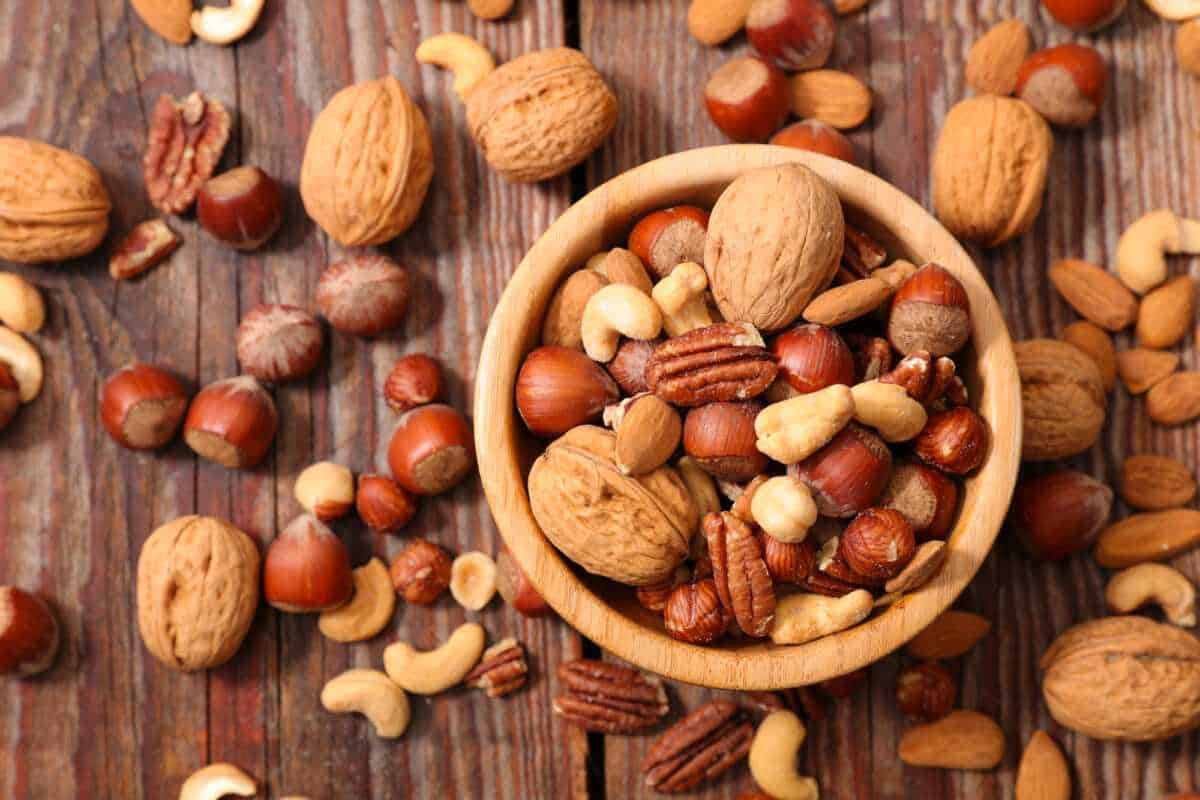
Additionally, it contains good fats, which are advantageous for the growth and development of youngsters, as well as for the health of their brains and hearts. Nuts have a high fiber content, which promotes the growth of good bacteria in the intestines, enhances bowel function, and speeds up the passage of excrement throughout the entire length of the colon.
makes it simple to do Children’s brains can benefit tremendously from the consumption of nuts due to the high protein content. In the following sections, we will look at each individual member of the family of dried fruits and describe the effects that they have on the health of children.
The hazelnut is particularly beneficial for the development and maintenance of children’s cardiovascular health, immune systems, and digestive systems, and it includes rich and nutritious ingredients.
Hazelnuts are very excellent for the bodies of children. In the following paragraphs, we will discuss the effects that it has on the bodies of youngsters.
Because of their high vitamin E content, hazelnuts are excellent for building up children’s muscles and mending any damage done to their tissues. Because of the high fiber content of hazelnuts, they are an excellent food to both prevent and treat constipation in youngsters.
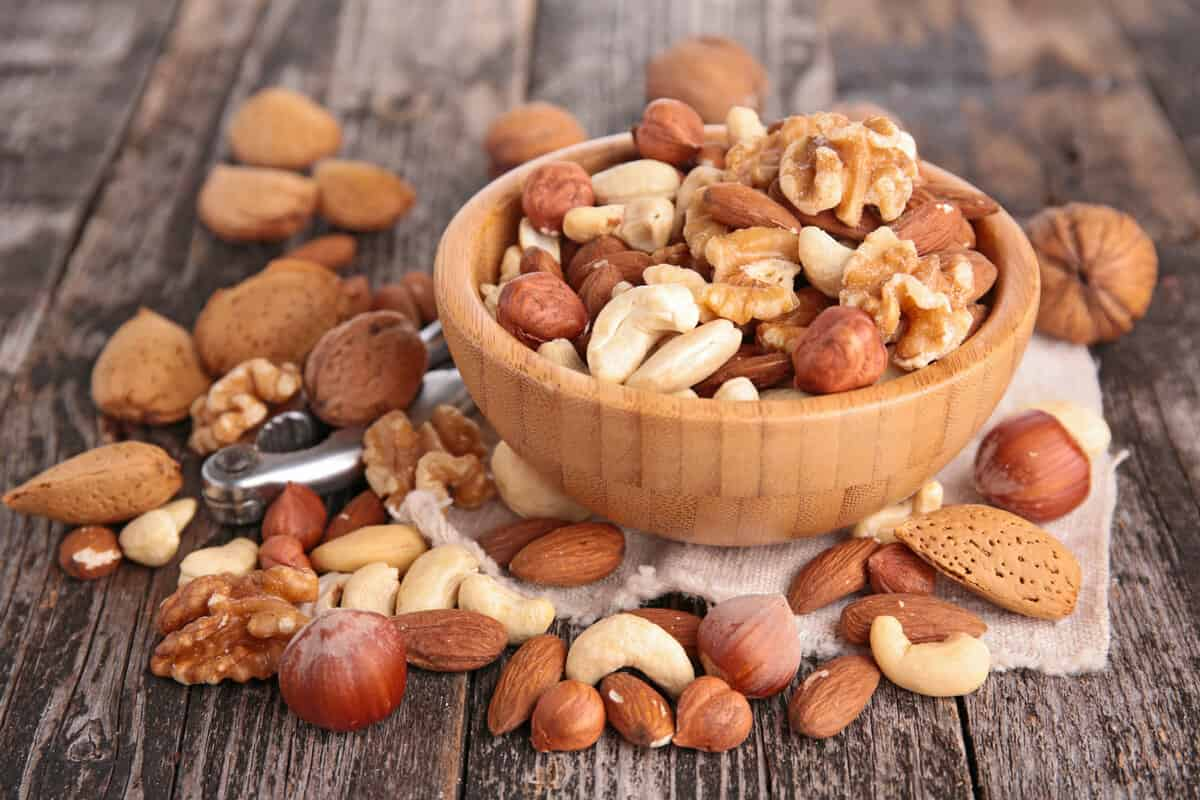
Children can benefit greatly from the iron and protein that can be found in hazelnuts.
The development of healthy red blood cells and the avoidance of anemia in children are both vitally dependent on iron’s presence. Vitamin K, which is found in hazelnuts, plays an important role in the coagulation of blood.
The hazelnut contains vitamin B, which not only promotes faster hair development and stronger bones but also enhances the neurological systems and digestive systems’ ability to work.
Enhancing children’s memory is another important benefit of giving them vitamin B, in addition to enhancing brain function and brain health. Children can benefit from the growth of stronger bones and faster wound healing thanks to the manganese found in hazelnuts.
The antioxidant capacity of hazelnuts in children lowers the risk of developing malignant tissues and of cancer itself being caused by the disease. The unsaturated fatty acids that are present in hazelnuts are beneficial to the health of the heart.
Children can benefit from the properties of walnut kernels
A walnut kernel is an excellent option for a snack for children because it satisfies the body’s requirements for calcium, magnesium, iron, phosphorus, sodium, potassium, lutein, beta-carotene, zeaxanthin, zinc, and the vitamins C and group B.
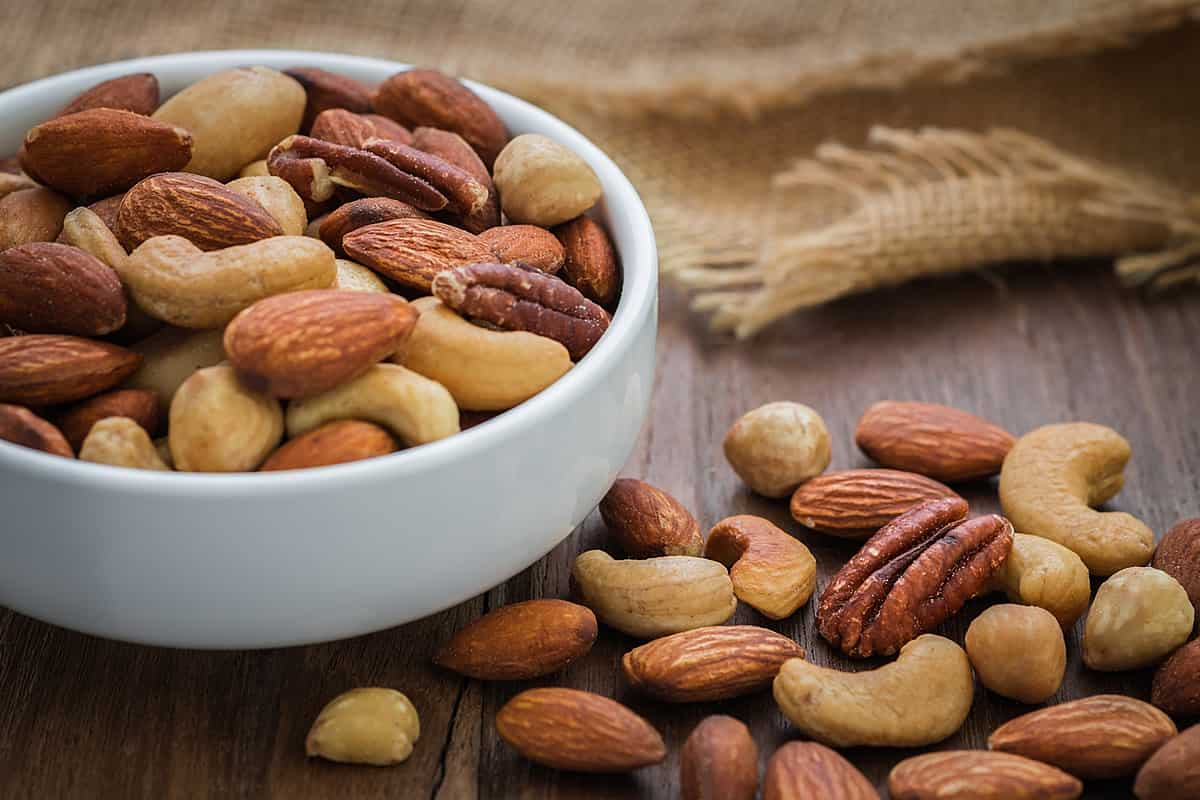
Walnut kernels also contain the antioxidants zeaxanthin and zinc. Is. In addition to this, it possesses anti-oxidant qualities that are beneficial for youngsters. The impact that walnuts have on the bodies of youngsters is discussed more below.
Walnuts are beneficial to children’s cardiovascular health due to the presence of omega-3 and omega-6 unsaturated fatty acids in their composition.
Walnuts are a good source of omega 3, which assists in the growth of a child’s brain as well as boosts the power of the mind and the activities of the brain. In addition to this, it enhances children’s capacity for learning and reinforces their memories.
Walnuts are beneficial to children’s bone health since they contain calcium.
Walnuts include calcium and fiber, two nutrients that lower the chance of youngsters developing colon cancer.
Walnuts include phosphorus and omega 6, two nutrients that boost children’s intelligence.
Walnuts include vitamin B, which is essential for brain health, the formation of brain tissue, and the maintenance of healthy neural systems in youngsters.
Walnuts are high in fiber, which helps youngsters feel full longer and protects them from becoming overweight by preventing overeating. Additionally, it eliminates the risk of constipation.
Walnuts are an excellent source of biotin, which helps to fortify hair follicles and prevent hair loss in youngsters.
Children can benefit from the properties of almond hulls
Vitamins and minerals like manganese, copper, potassium, phosphorus, zinc, selenium, calcium, iron, and magnesium can be found in almonds. It is also high in protein, vital fatty acids, and fiber, all of which are very beneficial to the developing bodies of youngsters.
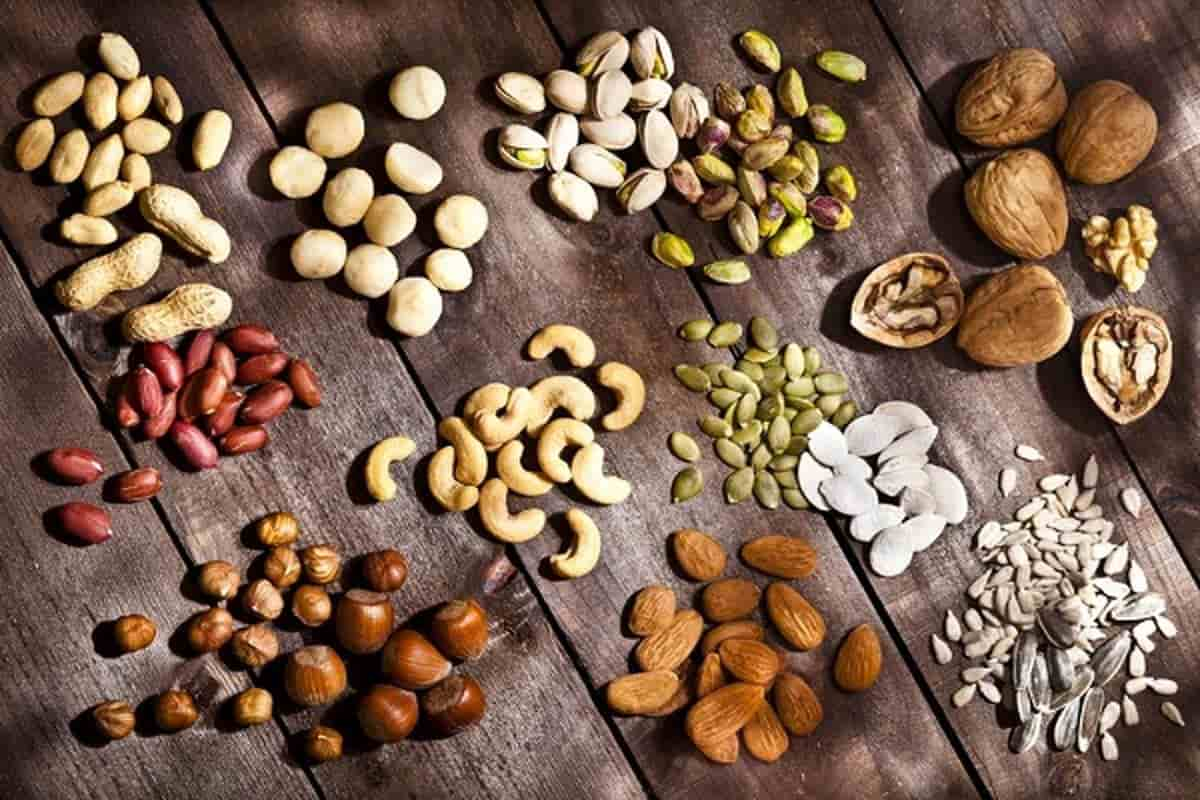
In the following paragraphs, we will discuss the impact that almonds have on the bodies of youngsters.
Because of the large quantity of calcium that can be found in almonds, eating almonds is excellent for the bone health of children.
Almonds are a good source of calcium, which helps children increase their ability to concentrate in addition to regulating their blood circulation.
Almonds’ high calcium content contributes to the healthy appearance of the skin. The absence of cholesterol in almonds makes them a particularly beneficial food for the cardiovascular health of children.
The immune systems of children are boosted by the beta-carotene antioxidants found in almonds. Almonds contain phosphorus, which has several beneficial health effects, including preventing tooth decay in children and making bones and teeth stronger.
Phosphorus and omega fatty acids are essential for the development of children’s brains and for the improvement of their memories. Additionally, it is beneficial for the neurological system and protects children from developing Alzheimer’s disease.
Due to the presence of copper and manganese in almonds, these nuts are extremely nutrient-dense and energetic.
Since of the high fiber content, almonds help youngsters maintain a healthy weight because they give the sensation of being full. Almonds’ high fiber content helps keep bowel movements regular.
Almonds include potassium and magnesium, two minerals that help regulate children’s blood pressure and lower the likelihood that they would acquire high blood pressure in their adult years. Because they are rich in linoleic acid and fatty acids, almonds have been shown to have an anti-inflammatory effect.



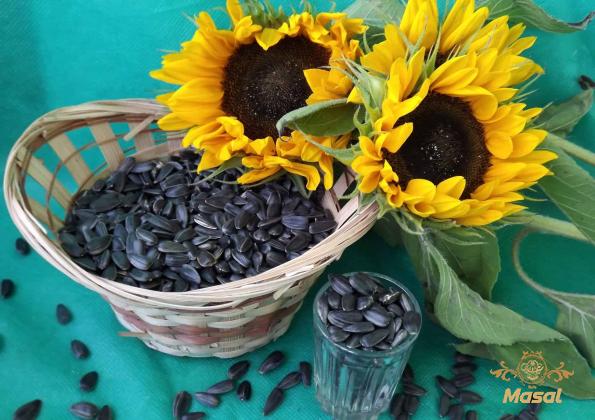

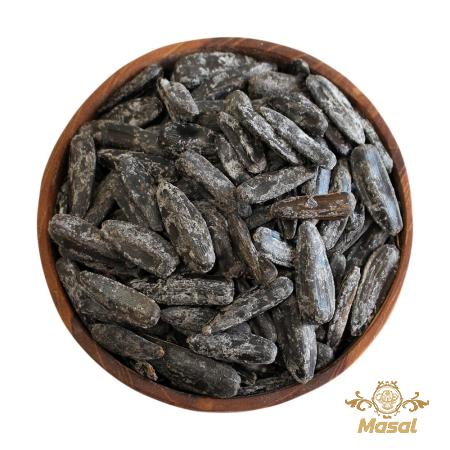
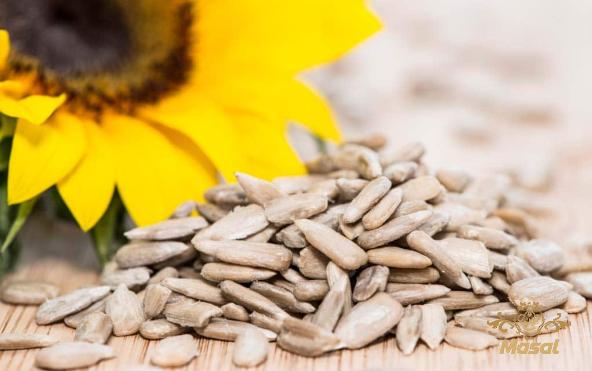
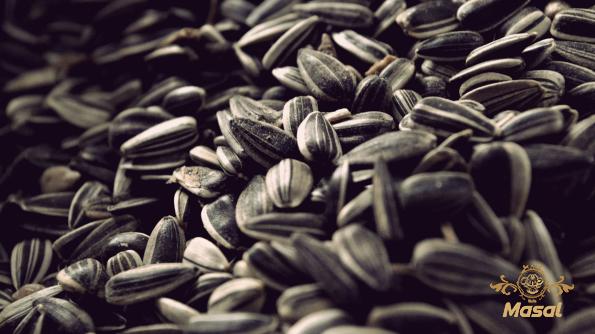


Your comment submitted.